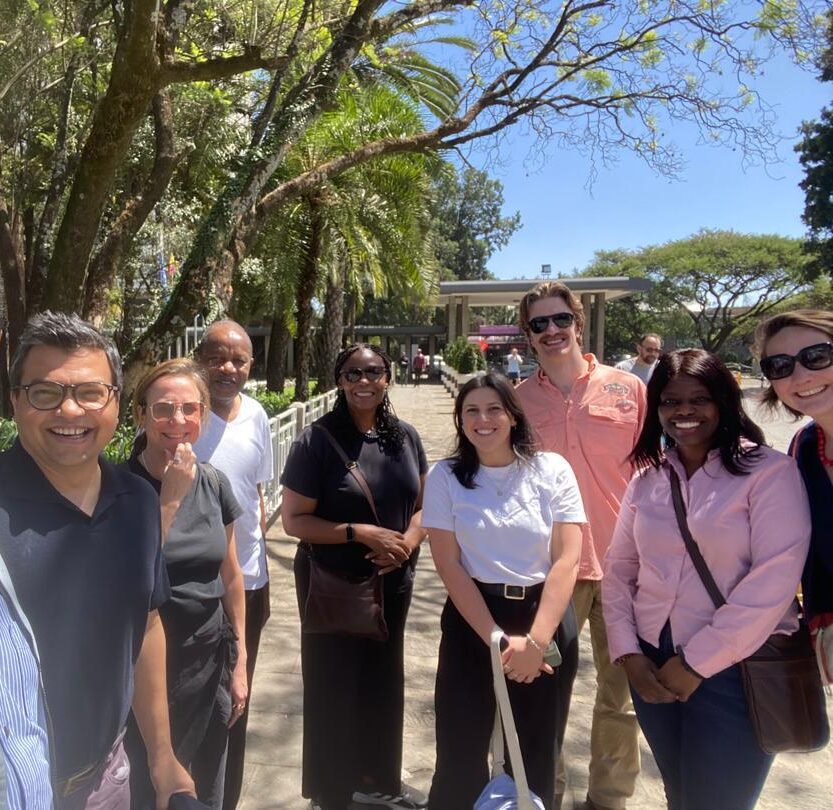In March 2025, the Cluster of Research Excellence (CoRE) on the Politics of Sustainable Development held its strategic planning meeting in Addis Ababa, Ethiopia. Stellenbosch University, through the Policy Innovation Lab, is a member of this partnership between the African Research Universities Alliance (ARUA) and the Guild of European Research-Intensive Universities (The Guild).
Speaking at the meeting, Dr Itai Makone said, “I am looking forward to collaborating with all partners of the Cluster as we practically address sustainable development challenges and contribute to building capacity on the African continent.”
This CoRE brings together eight partner institutions: the University of Oslo and the University of Pretoria (co-leads), Addis Ababa University, UCLouvain, the University of Malawi, the University of Nairobi, Utrecht University and Stellenbosch University. Stellenbosch University contributes to the Cluster through the Policy Innovation Lab, which uses data science and Artificial Intelligence to analyse South Africa’s sustainable development policy landscape. The Lab also supports the development of AI tools to enhance policy coherence, contributing directly to SDG 16.
Participants at the March meeting reflected on progress made in 2024. A major milestone was the launch of the Centre for Sustainable Development at Addis Ababa University in February 2024. The Centre enrolled an initial cohort of 12 funded PhD students, followed by a second cohort of 12 in 2025. These students are taught by CoRE-affiliated academics from across the partner institutions, giving them exposure to diverse critical perspectives and building a pan-African and European academic network. The Cluster also submitted funding proposals to expand the programme further.
On the research front, CoRE members were active in high-level forums throughout 2024. These included the Global Goals Conference at Utrecht University, the UiO Democracy Conference and several public lectures that reflected the Cluster’s research priorities. The ARUA-Guild Conference in October 2025 was a highlight, helping refine the Cluster’s agenda and deepen collaboration among the institutions.
Looking ahead, the Cluster aims to scale up its doctoral training efforts and increase its policy influence. Planned outputs for 2025 include webinars, public lectures, journal articles and a collaborative book project.
